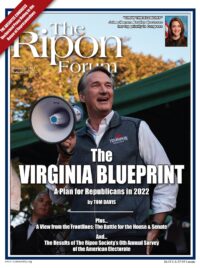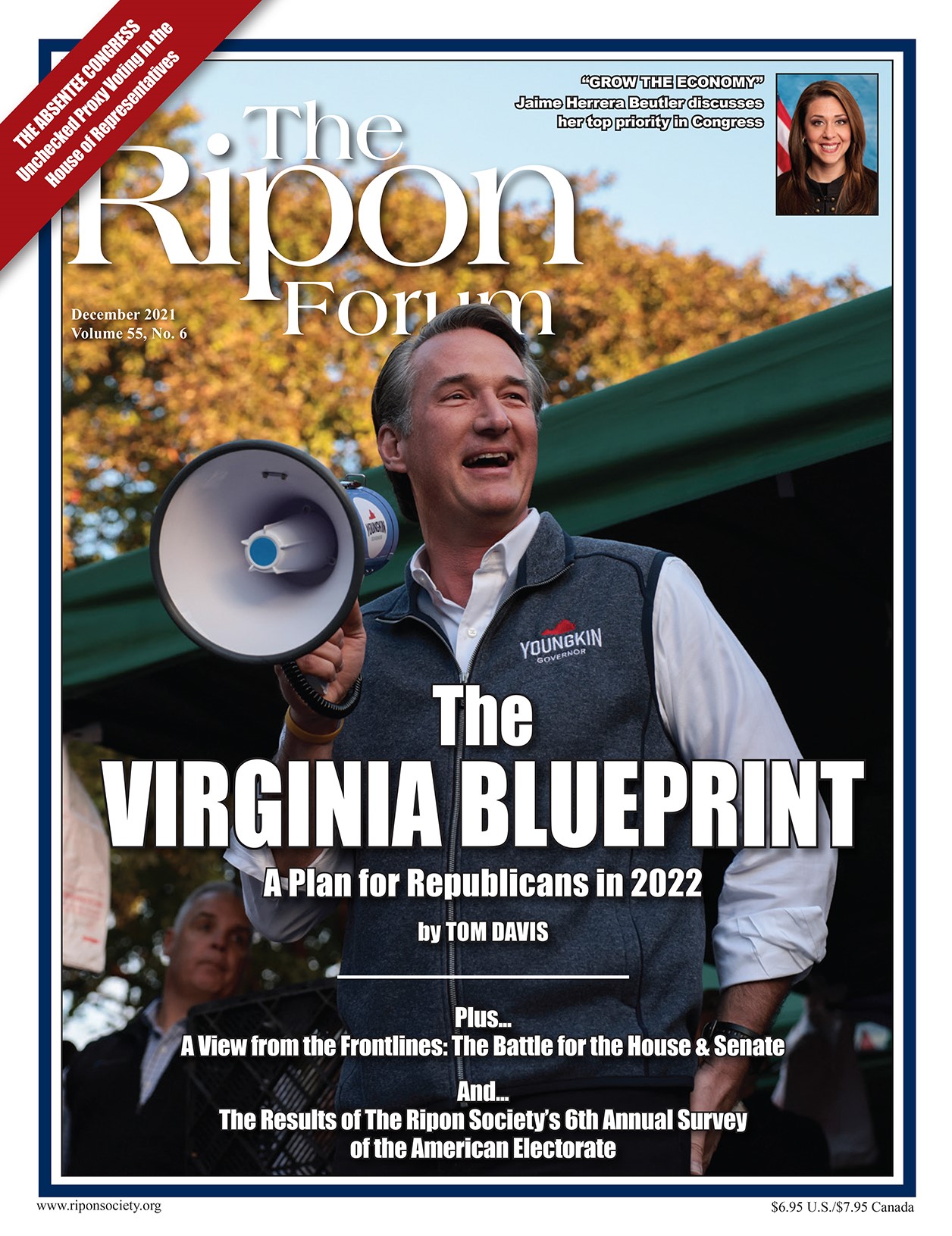Momentum is everything in politics. With it, you feel like you can do nothing wrong and your opponent can do nothing right. Without it, you feel like you are dead in the water, and your opponent is winning the race.
After reading the results of The Ripon Society’s 6th Annual National Survey in this latest edition of The Ripon Forum, it is hard not to conclude that Republicans have the momentum entering next year’s campaign. Indeed, from the the sagging poll numbers of the President to a political environment and issue set that favors the GOP, the Democrats are the ones who appear to be treading water less than one year out.
But of course, that is the key, isn’t it? The election is still over 11 months away. And as important as momentum is in politics, equally if not more important is timing and making sure that, from messaging to fundraising to getting out the vote, everything comes together at the moment that matters most — the moment that not only separates winners from losers, but one that turns longshots into leaders who take the oath of office in the new year.
Glenn Youngkin is one of those longshots-turned-leaders. A year ago, he was a political neophyte — a former business executive who had never run for office and was given little chance of winning the Republican nomination for Governor of Virginia let alone the Governor’s mansion itself. On January 15th, after running a disciplined campaign that stayed on message and did everything right, he will be sworn in as the Commonwealth’s 74th Chief Executive.
As former Virginia Congressman Tom Davis writes in the lead essay for this edition, Youngkin’s victory had as much to do with his ability to manage the intraparty divisions of today’s GOP as his ability to lay out a vision for Virginia — and the Republican Party — down the road. “Elections are about the future,” Davis writes, “and Glenn Youngkin epitomized a post-Trump party and post-COVID governance.” According to Davis, Youngkin’s victory also provides Republicans with a blueprint to run on in 2022. But he adds one note of caution — and a bit of advice. “Many voters are angry and are not enamored with Republicans and our agenda. They only want to use us to balance government. Our challenge is not to make ourselves the issue.”
Parker Poling and Kevin McLaughlin offer similar advice in a pair of essays examining the battle for control of Congress next year. Poling served as Executive Director of the National Republican Congressional Committee, while McLaughlin served as Executive Director at the National Republican Senatorial Committee. Both are optimistic about GOP prospects in 2022, but both also stress that Republicans need to make sure the focus remains on the Democrats.
One area where Democrats are likely to receive greater scrutiny is in their management of Congress and, more specifically, their use of proxy voting in the House over the past year. As Stephen Jackson and Kyle Chance of The Ripon Society report in an in-depth study, what started as a common sense way to keep the House functioning at the outset of the COVID-19 pandemic has become a legislative maneuver that — at least among some members, one could argue — is being abused.
In addition to proxy voting, another area that merits more attention in the coming year — and any year, for that matter — is how the federal government is spending our tax dollars. As Troy Cribb of the Partnership for Public Service writes, inspectors general play a critical role in that regard. With billions scheduled to be spent on infrastructure, Cribb argues that Congress needs to do more to ensure that IGs are able to work independently and free from interference from agency and executive branch leadership.
In other pieces for this edition, Mike Gonzalez of the Heritage Foundation examines the results of this year’s election and explains why, given the fact that Hispanic voters are increasingly voting for Republicans, demography is not destiny for the GOP. With ranked choice voting being adopted by New York City and other cities and towns across America, Gary Bartlett of the Ranked Choice Voting Resource Center and Nick Murray of the Maine Policy Institute debate whether it is a passing fad or growing success story. And in our latest Ripon Profile, Congresswoman Jaime Herrera Beutler explains why growing the economy is one of her top priorities on Capitol Hill.
As always, we hope you find this latest edition of the Forum interesting and informative, and welcome any questions or comments you may have.
Lou Zickar
Editor of The Ripon Forum
louzickar@clu.ccw.mybluehost.me





